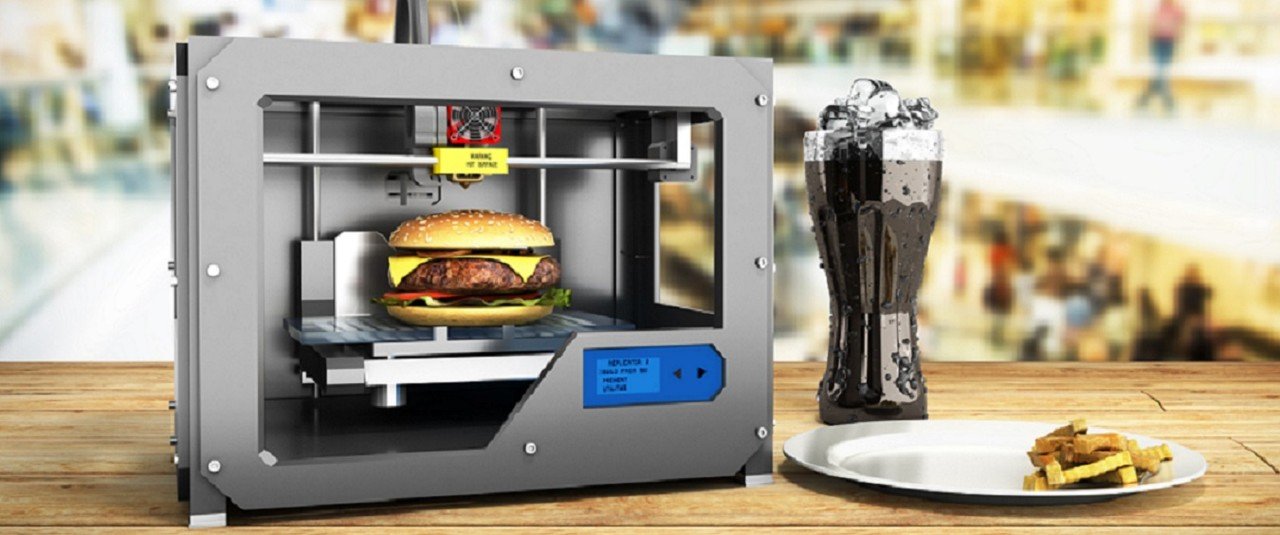Wednesday, 18 February 2026
3D food printing takes the food industry by storm
3DFP has evolved to significantly impact food production, allowing customised, nutritionally balanced foods In Asia, 3D food printing (3DFP), AI-driven kitchen equipment, and healthy foods are emerging as vital innovations…

3DFP has evolved to significantly impact food production, allowing customised, nutritionally balanced foods
In Asia, 3D food printing (3DFP), AI-driven kitchen equipment, and healthy foods are emerging as vital innovations in the food industry’s pursuit of sustainability. According to the report by Global Information, the Asia Pacific Food Technology Market will witness market growth of 10.5 per cent CAGR during the 2023-2030 period.
3DFP has evolved to significantly impact food production, allowing customised, nutritionally balanced foods.
Israel-based Steakholder Foods created the world’s first plant-based, 3D-printed shrimps designed to mimic conventional shrimps’ authentic texture and flavour. The company also launched the world’s first plant-based, 3D-printed eel, first ready-to-cook cultivated grouper fish products,
Steakholder Foods, a deep-tech food startup at the forefront of the cultivated meat industry, has focused its business model on targeting B2B meat manufacturers and cultivated meat producers by offering manufacturers the ability to produce a cultivated meat product that aims to closely mimic the taste, texture, and appearance of traditional meat. The company intends to monetise its 3D printers and bio-inks to support printer operation.
The company’s 3D printers are state-of-the-art technology designed to produce cultivated meat products that mimic conventional meat’s texture, taste, and appearance. The company is also developing two types of printer platforms – Ready to Cook (RTC) printers and 3D printers for incubated products.
Arik Kaufman, CEO of Steakholder Foods, said, “We expect to position Steakholder Foods to sell and deliver its first DropJet printer in 2024, offering partners and customers a unique opportunity to benefit from the expanding global seafood market, while making the right kind of impact on the environment.”
Alt Farm, a Hong Kong-based technology startup and one of the startup incubators of the HKUST Entrepreneurship Centre, announced last year about launching the first-ever 3D food printing technology in Asia. This technology can produce high-quality and creative food with a patented nozzle design, which achieves a product quality similar to that of high-quality desserts and plant-based nutrition. The innovative technology offers a more efficient, sustainable, and ethical way to create foods without compromising quality.
Alt Farm developed this 3D printing technology with their 3D printer equipped with a bio-reacting nozzle. The company plans to continue researching biochemical engineering and collaborate with the Hong Kong University of Science and Technology (HKUST) to incorporate 3D food printing technology for other traditional food.
Healthy foods
Health and wellness are dominant trends shaping Asia’s food and beverage industry. As people increasingly prioritise their overall well-being, they seek healthy food choices for their bodies and minds. Hence, menus that promote wellness are becoming more popular in Asia. Functional foods that provide additional health benefits and nutrition are gaining more attention. Dishes and drinks that use superfoods, probiotics, and adaptogens are now offered to make meals even healthier.
Australia-based Coles has joined forces with Nutri V, a vegetable company, to launch a range of innovative vegetable powders. The aim is to reduce food waste and give Australians an easy way to increase their vegetable intake. This is an Australian first, where Nutri V reduces food waste by transforming imperfect Aussie vegetables, like broccoli, pumpkin, and cauliflower, into a powder that can be added to smoothies, muffins, and pasta sauce.
Raquel Said, Nutri V’s Chief Executive Officer, said the powder range was an excellent option for people looking to help achieve the recommended five servings of vegetables daily and address the pressing issue of food waste.
Nestlé has launched its new early-life nutrition formula, Nan Supreme Pro, with a Sinergity blend. It’s a blend incorporating a probiotic and six human milk oligosaccharides (HMOs) designed to foster tailored infant development.
Probiotics play a crucial role in nurturing the gut microbiome and enhancing immunity. This is especially vital in infant development.
AI-equipped kitchens
The food and beverage industry has made significant progress in adopting technology, particularly in integrating AI-driven solutions and robots to deal with labour shortages. AI enhances several operations, such as inventory management, supply chain coordination, and recipe development.
Modern kitchens equipped with state-of-the-art technology streamline food preparation and enhance overall efficiency.
South Korea’s Aniai is an innovative startup leading the way in developing and commercializing a robotic solution for cooking hamburgers. Their flagship product, ‘Alpha Grill,’ has a double-sided grill that can cook up to eight patties simultaneously, allowing it to churn out 200 patties per hour with excellent efficiency. The company has already deployed the Alpha Grill to seven hamburger franchises in South Korea, including famous names such as DOWN TOWNER, BAS Burger, CJ Freshway, and Mom’s Touch.
Fresh2 Group Ltd., a company with operations in the United States and China, recently announced its strategic plan to launch Roxe Restaurant Robots. This innovative step is anticipated to mark a significant advancement in the culinary domain, as Roxe Restaurant Robots are designed to revolutionize kitchen operations with cutting-edge, robot-assisted cooking technology.
Vietnam-based KEENON Robotics, the leading global robotic service provider, introduces its latest breakthrough, the DINERBOT T10, in partnership with United Vision. This cutting-edge, multifunctional serving robot showcases unprecedented versatility with multi-modal interaction and customisation options through unique head accessories. The launch underscores KEENON’s dedication to transforming Vietnam’s food and hospitality industries, presenting innovative solutions catered to this thriving market.
The DINERBOT T10 has various features designed to redefine the dining experience. The robot ensures service efficiency by featuring an open-design large-capacity tray and plate detection for seamless meal retrieval. Enhanced motion control performance and an elevated chassis enable stable liquid delivery and effortless navigation through narrow passages, with an impressive minimum clearance of 59cm.
Chef Roboto, a Singapore-based company specialising in kitchen technology, has unveiled its latest invention, Fryer-bot. Chef Roboto is a subsidiary of HOPE Technik and Singapore’s homegrown leading engineering system integrators for robotics and automation. The introduction of Chef Roboto’s Fryer-bot promises to avoid the challenges of deep-frying food, such as undercooking, enabling chefs to reproduce the dish precisely and efficiently and replicate it across multiple restaurant outlets.
The Trends Shaping Asia’s Food and Beverage Industry in 2024 It’s evident that food technology is evolving rapidly. Businesses must stay up-to-date with the latest developments in the market and emerging food trends to succeed in a highly competitive industry.
Shraddha Warde
shraddha.warde@mmactiv.com
Technology
Carlsberg Launches AI-Crafted Lunar New Year Packaging
Feb 17, 2026 | Beverages
FAO Experts Assess Risk of Antimicrobial Resistance Spreading via Food Loss and Waste
Feb 17, 2026 | Sustainability
Setting the Standard for Sustainable Ingredients
Feb 16, 2026 | Ingredients
Food Testing
Redefining Trust in Organic Foods through Independent Testing
Feb 13, 2026 | Food Safety and Testing
AFNOR International Eyes Global Food Safety Growth with HACCP Group Takeover
Feb 04, 2026 | Australia
More Popular
HUL Invests Rs. 824Cr to Acquire Stake in OZiva, Divests Holding in Nutritionalab
Feb 18, 2026 | Company News
New Australian Wine Future Fund to Boost Research and Venture Investment
Feb 18, 2026 | Australia
Cerealto Sells Pasta Unit to Specialist Player Cerealis
Feb 17, 2026 | Company News






